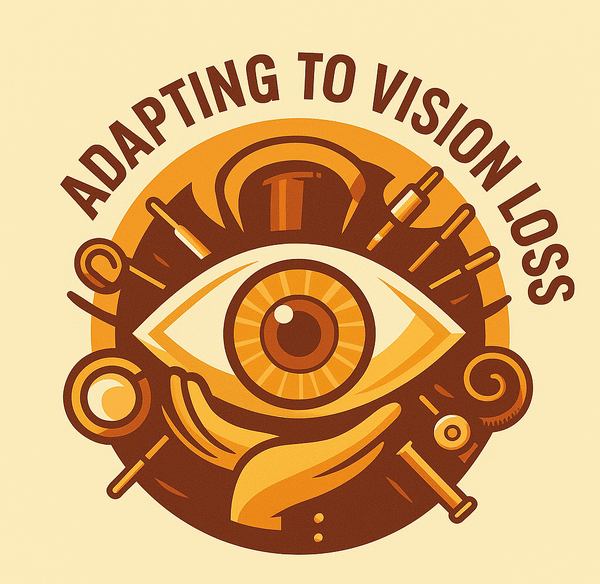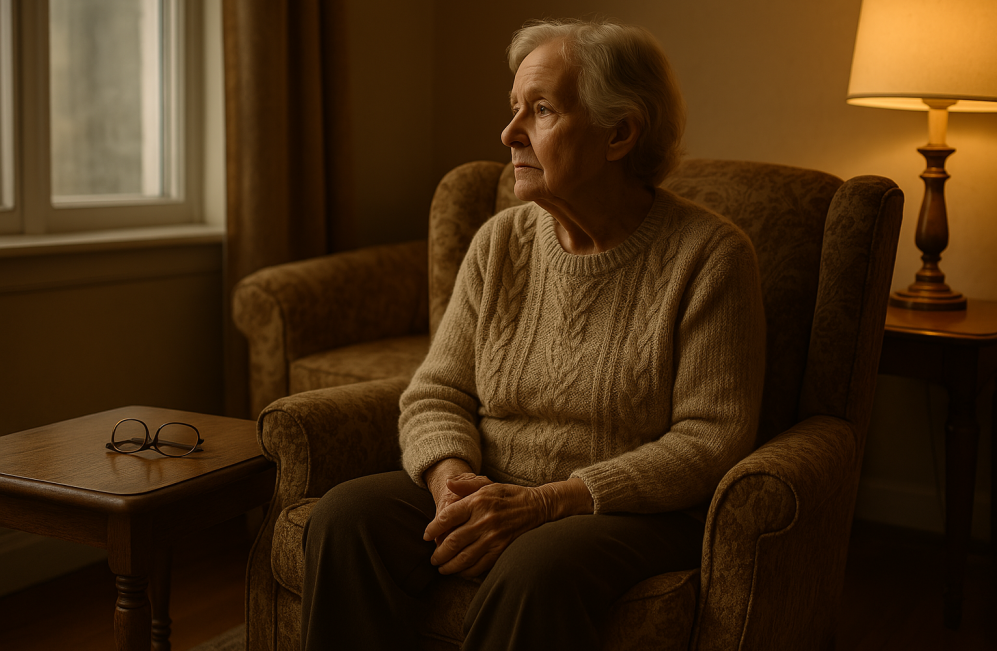 Vision loss can be a daunting experience. It’s normal to feel a whirlwind of emotions when faced with such a significant life change. Around 85% of visually impaired people retain some level of sight, which is a comforting fact to know. But whether it’s partial or total loss, it’s essential to focus on emotional well-being.
Vision loss can be a daunting experience. It’s normal to feel a whirlwind of emotions when faced with such a significant life change. Around 85% of visually impaired people retain some level of sight, which is a comforting fact to know. But whether it’s partial or total loss, it’s essential to focus on emotional well-being.
Addressing the emotional impact of vision loss is just as important as dealing with the physical aspects. Vision loss can lead to feelings of denial, helplessness, and sometimes depression. Acknowledging these emotions is the first step towards managing them. Acknowledgement might feel like you’re giving in, but it’s far from that. It’s about understanding your new reality, which opens up pathways to finding support and coping mechanisms.
So why is it important to talk about this? Emotional health is deeply tied to physical health. Ignoring or bottling up emotions can amplify stress and anxiety, which, in turn, can exacerbate physical symptoms. By addressing emotional well-being early on, you set the stage for a more constructive adjustment to your new circumstances. It’s okay to feel overwhelmed – that’s human. But you’re not alone on this journey, and resources are available to help you navigate through it.
Understanding Emotional Reactions to Vision Loss
Losing vision isn’t just about what you see with your eyes – it’s the emotions and mental battles that come with it. Emotional responses like denial, helplessness, and depression are common, and they can hit hard. It’s crucial to recognize these feelings because sweeping them under the rug only makes things harder.
Denial can be a natural first reaction. It’s a way of trying to cope with the shock. Yet, lingering in this phase stops you from taking the next steps. It’s alright to feel like this initially, but reaching out to trusted friends or family can help bring some clarity and acceptance.
Helplessness often follows. The fear of being dependent on others or not knowing how to navigate your new world can be paralyzing. Here’s the thing: feeling helpless isn’t a sign of weakness. It’s merely a signpost indicating the need for support and new skills. There are countless resources, from mobility training to adaptive technology, designed to boost your confidence and independence.
Depression is another heavyweight in the mix. Persistent sadness, loss of interest in activities, or changes in appetite and sleep patterns may indicate it’s more than just a passing mood. Seeking professional help, like counselors who specialize in vision loss, can make a significant difference.
Acknowledging these emotions is the real turning point. They’re valid, and they’re part of the process. And remember, you don’t have to go through this alone. Support is out there, from therapy to community groups, ready to help you embrace this new chapter.
Coping Strategies: Processing and Managing Emotions
When it comes to coping with vision loss, processing your emotions is a giant leap forward. Knowing some strategies to manage them can make all the difference. Each journey is unique, so finding what works for you is key.
First off, consider psychological support. Therapists can provide a safe space to talk through your feelings and develop personalized coping mechanisms. Some people might find solace in group therapy, where sharing experiences with others in similar situations can offer comfort and a sense of community.
Mindfulness and stress reduction techniques are also worth exploring. Practices like meditation, deep breathing exercises, and gentle yoga can help ground you. These methods can reduce anxiety and improve overall mental health. It’s all about finding moments of calm amid the storm.
Building emotional resilience is another important aspect. This doesn’t happen overnight, but small, consistent efforts can build a stronger mental foundation. Positive affirmations, setting realistic goals, and celebrating small successes can boost your confidence and outlook.
Don’t underestimate the power of hobbies and interests. Engaging in activities you love, whether it’s listening to music, tactile crafts, or gardening, can be incredibly therapeutic. These outlets offer a break from focusing on what’s lost by highlighting the joys you still have.
Lastly, staying connected with loved ones is vital. Honest conversations with family and friends about your experiences can strengthen your support network. They might not fully understand what you’re going through, but their support can provide comfort and stability.
Practical Adjustments and Skills Development
Navigating the world with impaired vision involves practical adjustments. Learning new skills can help you regain a sense of independence and confidence. It might feel overwhelming, but each small step is progress.
Adaptive skills are essential. Techniques like orientation and mobility training teach you how to move safely through different spaces. Whether it’s using a cane, employing sound cues, or learning specific routes, these skills are invaluable. Many organizations offer these training programs tailored for different needs.
Embrace assistive technologies. From screen readers to magnification software, technology is on your side. These tools can make everyday tasks, like reading emails or navigating websites, much more manageable. Smartphones and tablets also offer various accessibility features – explore what works best for you.
Educational opportunities, such as workshops and training sessions, are fantastic resources. Look into local foundations or online courses that focus on skills for the visually impaired. These programs range from daily living techniques to advanced tech training.
Developing these competencies can significantly boost your independence. However, it’s also okay to ask for help when needed. Balancing self-reliance with seeking assistance builds a supportive and practical approach to daily life.
 Fostering a Supportive Environment
Fostering a Supportive Environment
A solid support system is crucial when navigating vision loss. Family, friends, and the broader community play a significant role in providing emotional and practical support. Open communication with your loved ones about your needs and feelings can create a healthy and empathetic environment.
Support groups and networks are invaluable. They offer a space where you can share experiences, learn from others, and find encouragement. Many organizations and communities have groups specifically for people dealing with vision loss. Being part of these networks can make you feel less isolated and more understood.
Advocating for yourself and others with visual impairments is empowering. Creating awareness about the challenges and needs of visually impaired individuals can lead to better resources and accommodations. Sometimes, simply educating those around you can foster greater empathy and support.
Don’t forget to explore local resources. Many communities have organizations dedicated to supporting visually impaired individuals, offering everything from adaptive equipment to guide services.
Combining personal networks with professional support creates a robust framework. It’s not just about managing day-to-day tasks but also about fostering a sense of belonging and community.

